Carl E. Olson's Blog, page 205
July 30, 2012
Despotism, Distraction, and the Defense of Civilization
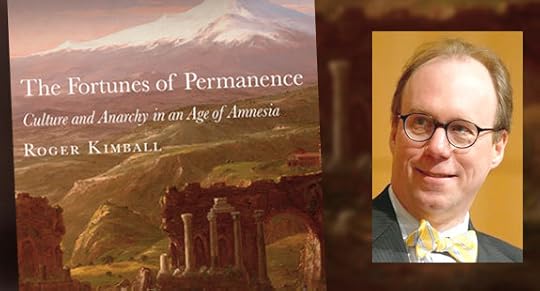
An interview with author Roger Kimball about his new book, The Fortunes of Permanence: Culture and Anarchy in an Age of Amnesia
Roger Kimball is Editor and Publisher of The New Criterion and President and Publisher of Encounter Books. He is an art critic for National Review and writes a regular column for PJ Media at Roger’s Rules. He has written and edited several books on art, literature, culture, politics, and education. He recently spoke with Catholic World Report about his most recent book, The Fortunes of Permanence: Culture and Anarchy in an Age of Amnesia, published by St. Augustine's Press, offering his thoughts on relativism, tyranny, culture, religion, Chesterton, art and architecture, socialism, and the future of Western civilization.
Catholic World Report: In the Preface, you write that the "embrace of relativism was a harbinger, a symptom of a seismic shift in the way people view the world." What was that seismic shift? And how did it set the stage, so to speak, for the rise and growing acceptance of relativism?
Kimball: Perhaps the best way of identifying the nature of that shift is to quote Dostoyevsky’s famous observation, from The Brothers Karamazov, that “If there is no God, everything is permitted.” Dostoyevsky’s great insight was to see that without allegiance to the transcendent, our parochial attachments are anchorless, and, being anchorless, they tend to drift along whichever way the current of sentiment pushes them. As I note in Fortunes, relativism, whether or not it travels under that particular name, has more and more assumed the status of a civil religion in the West. It bearing the promise of liberation from old pieties—just think back to the rancid jubilations of the 1960s and 1970s if you want an example—but regularly delivers new forms of tyranny and enslavement.
That’s to say, while the first upsurge of relativism can be an intoxicating draught—think again of the giddiness that ushered in the Sixties—the unpleasant hangover, the foundering on the jagged shoals of reality—is not long in coming. What seemed like a welcome liberation soon reveals itself as a vertiginous exile. Which is to say that, at bottom, relativism is a religious problem. “God is dead,” Nietzsche proclaimed in the 1880s. What he observed was an emotional, not an historical, fact. The unspoken allegiance to something transcending the vicissitudes of human desire had been (among the elites, anyway) shattered. The result was nihilism, that existential vacuum which human nature abhors and rushes to fill with a panoply of brazen idols and false gods.
Catholic World Report: An interconnecting theme in the book is how relativism informs a number of modern impulses and trends, including those of tyranny, utopianism, and benevolence. Many people, it is safe to say, think those three have little or no connection at all to one another. How are they connected? Why do many people fail to see the relationship between them?
Peter Kreeft talks about C.S. Lewis, philosophy, and "must read" books...
... with blogger and author Brandon Vogt. A taste:
Brandon: Outside the Bible and Catechism, what are the top five books you wish every Catholic would read?
Peter Kreeft: Augustine’s Confessions, Pascal’s Pensees, Frank Sheed’s Theology and Sanity and Society and Sanity, and Brother Lawrence’s The Practice of the Presence of God. All of them bring heart and head together to powerfully push the reader up the road to the meaning of life, which is to be a saint, in head, heart, and hand.
The Confessions is unclassifiable; it has everything. The Pensees is the best modern apologetic book. Sheed’s two classics are the clearest popular introduction to Catholic theology I know. And Br. Lawrence’s is the simplest and most effective book for beginners in the spiritual life.
More about the prolific Peter Kreeft on his Ignatius Insight author page. And:
• The Sacraments | From Fundamentals of the Faith
• What's the Point of Creeds? | From Fundamentals of the Faith
• Three Questions Everyone Should Ask Themselves | The Introduction to Because God Is Real: Sixteen Questions, One Answer
• Pascal For Today | From the Preface to Christianity for Modern Pagans: Pascal's Pensées (Edited, Outlined, and Explained)
• The Two Most Important Philosophers Who Ever Lived | The Introduction to Socrates Meets Descartes: The Father of Philosophy Analyzes the Father of Modern Philosophy's Discourse on Method
• The Comprehensive Claim of Marxism | From Socrates Meets Marx: The Father of Philosophy Cross-Examines the Founder of Communism
• On Spiritual Warfare | From The Snakebite Letters
• On Writing and Apologetics | Talking with Peter Kreeft
• Seducing Minds With The Socratic Method | An Interview with Peter Kreeft
• Socrates Meets Sartre: In Hell? | From Socrates Meets Sartre
• The Point of It All | From The God Who Loves You
• The Divinity of Christ | From Fundamentals of the Faith
• How To Read The Bible | From You Can Understand The Bible
• The Presence of Christ in The Lord of the Rings | From The Philosophy of Tolkien
• Abortion: What Can Be Done? | Introduction to Three Approaches to Abortion
• The Question of Hope | From Heaven: The Heart's Deepest Longing
July 28, 2012
The Shock of the Blessed Sacrament
A Scriptural Reflection on the Readings for Sunday, July 29, 2012 | Seventeenth Sunday in Ordinary Time | Carl E. Olson
Readings:
• 2 Kgs 4:42-44
• Ps 145:10-11, 15-16, 17-18
• Eph 4:1-6
• Jn 6:1-15
When, as an Evangelical Protestant, I began working my way through the many Catholic beliefs that both puzzled and attracted me, one really stood out: the Eucharist.
And of all the various Scripture passages I read, re-read, and studied, there was one that especially shook me to the core: the sixth chapter of John. As I read what is among the most astounding and brilliantly realized passages of the Bible, the tension would build to the moment when Jesus, with serene firmness, asked of his murmuring disciples, “Does this shock you?”
Yes, I thought to myself, it does shock me. What to think? What to do?
The center of the shock is located in John 6:51-59, where Jesus stated emphatically, “Amen, amen, I say to you, unless you eat the flesh of the Son of Man and drink his blood, you do not have life within you” (Jn. 6:53). But to appreciate more profoundly the mystery of the great Bread of Life discourse, we need to start at the beginning of the chapter and slowly work through the various stages of explosive revelation found in what is an argument, a teaching, a prophetic utterance, and, ultimately, a direct encounter with the heart of Jesus Christ.
Today’s Gospel reading is the first of five successive weeks of readings from John 6. These opening fifteen verses establish both the physical and theological context of what follows. Jesus had crossed the Sea of Galilee with a large crowd following on land; the people were curious about the miracles and signs performed by the Nazarene.
St. John notes, quite purposefully, that Jesus “went up on the mountain,” which indicates that God was about to work in a miraculous and startling way. The Evangelist also indicates the feast of Passover was near; this was the second Passover during Jesus’ public ministry. During the first Passover, Jesus had cleared the Temple and then prophesied rather cryptically his death and resurrection (Jn. 2:19-22). Later in John 6, Jesus spoke again about his death and resurrection (6:51). And the third Passover, of course, was when Jesus was arrested, tried and crucified (Jn. 19:14).
The Passover context is significant for this central Jewish feast was a solemn ceremony in remembrance of the Exodus from Egypt, a pivotal and defining moment in Jewish history. At that first Passover (Ex. 12) the people were commanded to take an unblemished lamb, kill it, and spread the blood over the doorposts. They were then commanded to eat the lamb completely, along with unleavened bread. Down through time the Jews celebrated the Passover with a feast involving bread and wine and the singing of Psalms, followed by the sacrificing of lambs in the Temple.
Jesus is described as the Lamb of God “who takes away the sin of the world” in the opening chapter of John’s Gospel (Jn. 1:29). In the sixth chapter, then, the essential themes are sustenance, sacrifice, and salvation. The sustenance was, first of all, physical in nature. Jesus was quite aware of the basic needs of those following him. But the miracle of the multiplication of the loaves and fishes was not simply about physical satisfaction, but was the start of spiritual challenge and illumination.
In a pattern described several times in the Fourth Gospel—think of Nicodemus (Jn. 3) or the Samaritan woman at the well (Jn. 4)—Jesus began with a physical object or event, such as birth or water, and used it as a springboard into deep spiritual waters. Those waters, in turn, are shown to be sacramental in nature. As we will see over the next few weeks, the physical sign of multiplying bread—itself a symbol pointing to the reality of the Eucharist—led to the declaration of a spiritual truth, “I am the bread of life” (Jn. 6:35).
That, in turn, will bring us face to face with the sacramental reality—“For my flesh is food indeed, and my blood is drink indeed” (Jn. 6:55)—and the question: “Does this shock you?”
(This "Opening the Word" column originally appeared in the July 26, 2009, edition of Our Sunday Visitor newspaper.)
July 26, 2012
The "crazy" rhetoric of Michael Sean Winters
Being called "crazy" by Michael Sean Winters is like being called a "heretic" by his employer, the National Catholic Reporter—if that particular publication ever admitted the existence of heresy. Such accusations lack gravitas and authenticity; they also come across as a bit, well, crazy:
Those who are prone to conspiratorial explanations of phenomenon tend to be, well, a little bit crazy. And, their craziness is not only intellectual, it is moral.
How else to explain this bizarre article at the Catholic World Report anout the "Nuns on the Bus" tour being linked with financier George Soros. Soros, you see, gave money to the Center for American Progress. The Center for American Progress played a role, not clear what role from this diatribe, in the foundation of the group Faith in Public Life. The group Faith in Public Life apparently was one of the groups that the nuns at NETWORK met with when the idea of having a bus tour was hatched. Q.E.D. Sr. Simone might as well have been caught sitting in Soros' lap! And all for the sake of publicity! The horror. Except that, in a democracy, publicity is not a bad thing, is it? What is so different about the bus tour from the pamphlet "Common Sense"? And, in American democracy today, the idea of trying to garner publicity for the plight of the poor by means of a bus rental is almost quaint, at least when compared to the gobs of money making its way onto the airwaves via the SuperPACs.
And, so what if Sr. Simone had cashed a check direct from Soros? Where did this demonization of Soros begin? I may not agree with all of his politics, but the man has used a considerable amount of his considerable fortune to promote civil society and democratic norms and independent journalism in the countries ravaged by Communism. Is that such a bad thing? I deplore some of his positions, especially his support for euthanasia, but that cannot undo all the good he has done. Ignoring the good, and only emphasizing the bad is, tarring everyone with an association with an indictment, this sort of conpiratorial think is, as I say, crazy.
Folks can read my post and judge its level of intellectual and moral craziness for themselves. For my part, I'm unclear what Winters means by "moral craziness"; is he actually accusing me of a specific depravity, evil, and sin? Or inclination to the same? (I know he believes in sin: it is any action or thought issuing forth from what he calls "Catholic neo-cons".) Perhaps I missed the memo about going easy (as the mainstream media does) on an atheist billionaire who has been convicted of insider trading in France, and who supports a number of dissenting, progressive Catholic groups, some of which are openly pro-abortion, such as Catholics For Choice. And how, for goodness sake, does my post qualify as "conspiratorial"? Especially since Soros's political and social stances are fairly well-known and his support of causes and groups in opposition to Church teaching and authority are equally evident?
Well, I would spend more time analyzing it, but over the years I've learned that analyzing the "logic" of Winters' posts and articles is like looking for a melody and a sax solo in a Sex Pistols "song". Besides, it is obvious Winters knows that his core readership of catechesis-challenged Catholics will dutifully come running when he throws out the "crazy" label. Having penned the post, "Conspiratorial Craziness" (see above) about myself and CWR on July 11th, he quickly followed up with a post titled "More Conspiratorial Craziness" on the same day:
Ecology, Politics, and "Love of the Home"

Ecology, Politics, and "Love of the Home" | William L. Patenaude | Catholic World Report
A review of Roger Scruton’s Green Philosophy: How to Think Seriously About the Planet
Nuance is often lacking in discussions about global environmental crises, which makes Roger Scruton’s Green Philosophy: How to Think Seriously About the Planet (Oxford University Press) a gift for those distraught by the doomsday scenarios or outright denial voiced by many today about life on Earth. Scruton’s examinations of agriculture, climate change, widespread plastic pollution, and much more offer sound, challenging food for thought—even if the necessary ingredients to achieve his proposals are left largely unstated, as people of faith will notice.
Scruton is an English writer and philosopher. He labels himself as conservative but his writings and observations can defy the commonly accepted meaning of that label. In How to Think Seriously About the Planet one finds solutions that would, and do, delight liberal ecological crusaders. This is but one example of Scruton’s willingness to seek answers along any path that will do.
In just over 400 pages, the book connects topics that should be connected when discussing ecology: politics, philosophy, aesthetics, economics, sociology, the natural sciences, history, and current events. What is hardly mentioned, however—and when it is, only with the lightest of touches—is faith, especially the Christian faith that Scruton has adopted and that formed the foundational narrative of much of the Western world that he examines. Perhaps Scruton assumes that his audience will be largely secular and so wishes to avoid any terminology—like sin, grace, or God—that may interfere with, or be diminished by, his political message.
Nevertheless, love and sacrifice play big roles in this book. The central proposal for thinking seriously about the planet is “old-fashioned oikophilia”—the love of the home. It is this love, Scruton argues, that provides the best means to counter human-induced ecological crises. Any changes in human practices that are meant for the good of the environment (and, thus, for people) must root themselves in our “individualist” instinct for communities to tend to their own. The opposing “egalitarian” reflex—to solve problems through the actions of strangers within centralized governments, international agencies, or non-government organizations, of which no one political authority is in control—will too often fail and in many cases already has.
Scruton writes that “[t]he conservative understanding of political action that I propose is formulated in terms of trusteeship rather than enterprise, of conversation rather than command, of friendship rather than the pursuit of some common cause. Those ideas lend themselves readily to the environmental project, and it always surprises me that so few environmentalists seem to see this. It is as obvious to a conservative that our reckless pursuit of individual gratification jeopardizes the social order as that it jeopardizes the planet. It is obvious too that the wisest policies are those that strive to protect and keep in place the customs and institutions that place a brake on our appetites, renew the sources of social contentment, and forbid us to pass on the costs of what we do to those who did not incur them.”
It is hard not to hear a dialogue with Christian ethics in Scruton’s definition of political action. Indeed, much of what Pope Benedict XVI has said about ecology and human consumption aligns with Scruton, when stripped of political adjectives. But Scruton’s musings about conservative political philosophies do not journey into faith, even if this is where the entire project seems headed.
Liturgy: The Foundation and Strength of Marriages

Liturgy: The Foundation and Strength of Marriages | Sarah Elizabeth Maple | Homiletic & Pastoral Review
The Eucharistic celebration is a testament to the need for man’s self-gift as response to God’s gift to us through his Son …. to find himself through his own, sincere gift of himself … reflected in his total consecration to God through an earthly marriage.
Of great significance today is the issue of divorce, of increasing concern in our cultural landscape. In a world so broadly influenced, and ministered to, by the Christian mission of “love” and “unity,” many wonder at the reality of this growing divide at the heart and very core of society: divorce within the family. In his 2010 article, “The Era of the Narcissist,” Aaron Kheiriaty states:
Christianity was the leaven that shaped a more humble and humane culture; gave rise to America’s founding values; and, ultimately, prevented us from worshipping ourselves. The cure? Either we will become the salt and light that purge and dispel the insipid narcissism that surrounds us, or our culture will continue to descend deeper into the loud, crass, and aggressive cult of self-worship. 1
In this quote by Kheiriaty, we see the depth of our cultural crisis: narcissism. Our society, with its abundance of divorce statistics, has become more selfish and, therefore, undercutting self-giving. The very foundation of Christianity, of the Church, and, indeed, the Eucharistic liturgy, is about self-sacrifice. But our society is often referred to, now, as a “culture of divorce.” It was nearly 80 years ago that the author, Odo Casel, anticipated the problem and outlined a remedy for our marital crisis. Though Casel does not extensively discuss the sacrament of marriage, per se, his insights of the power of the liturgy are extraordinarily helpful in restoring man’s understanding of his origin and purpose. Controversial within his lifetime, this publication was widely accepted and influential in the crafting of the “Constitution on the Sacred Liturgy,” of the Second Vatican Council, in December 4, 1963. In his book, “The Mystery of Christian Worship,” Casel considers three points concerning man’s relational nature:
The Non-Neutrality of the Secular State
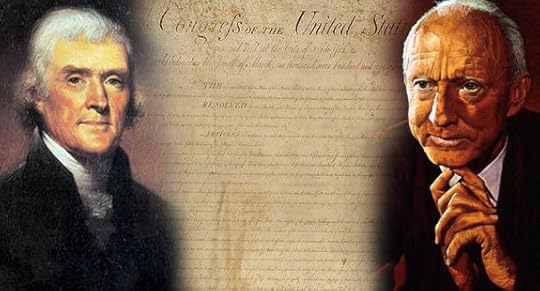
The Non-Neutrality of the Secular State | Benjamin Wiker | Catholic World Report
Jefferson’s view of the First Amendment has become authoritative. That is a problem, because Jefferson did intend to promote religion’s exile from public life.
As the bishops make clear in their statement on religious liberty “Our First, Most Cherished Liberty,” the HHS mandate declaring that Catholic institutions must provide contraception and abortifacients in their insurance coverage is only one of a number of attacks by the secular state against the Church.
Why the attacks? Surely the state would declare that it is merely following the dictates of the First Amendment’s Establishment Clause, which demands, so the Supreme Court tells us, that the federal government “erect a wall of separation between church and State.” Ushering religion out of the public square so that one sect doesn’t set up shop to the exclusion of others and thereby commandeer the government to do its bidding—well, that’s the government’s ordained job. Freedom of religion for everyone demands that no religion gain privileged access, and so all must be kept on the other side of the wall of separation. So we’re told.
The bishops do not agree. In “Our First, Most Cherished Liberty,” they quote from another important document, “In Defense of Religious Freedom,” a statement of Evangelicals and Catholics Together. ECT asserts that the First Amendment’s decree that “Congress shall make no law respecting an establishment of religion” does not “demand a naked public square, shorn of religiously informed moral conviction. The ‘separation of church and state’ is intended to protect freedom for religious conviction; it is not intended to promote religion’s exile from public life.”
I beg to differ, or perhaps, I beg at least to clarify. The historical and constitutional waters are too muddied to make such a clean and clear assertion. It is correct, I think, to assert that the First Amendment’s declaration that “Congress shall make no law respecting an establishment of religion” does not “demand a naked public square.” But if we scratch beyond the surface we find that the “separation of church and state” is in fact “intended to promote religion’s exile from public life.”
July 25, 2012
"Humanae Vitae": 44 years later, it continues to challenge us to love, trust, and sacrifice
My most recent late night post on the Catholic World Report blog:
The encyclical, Humanae Vitae, was promulgated 44 years ago today, on July 25, 1968. The word often used to describe Pope Paul VI's encyclical is "prophetic". It is one of those rather rare cases in which such a daunting, loaded, and strong adjective is exactly on the mark. Being prophetic, in the biblical and apostolic tradition, involves far more than some sort of foretelling of future events. It is, first, a forthtelling of truth, a proclamation of the Word of God. As such, it requires courage and a willingness to be rejected, mocked, and even vilified.
All of that happened to Paul VI, and the case can be made (and has been made many times over) that Humanae Vitae and the immediate response to it—harsh, mocking, dismissive, angry—marked a pivotal moment in the Church's life in the modern era in the West. There was talk then, as there is even today, that the deep divide over the teachings of Humanae Vitae and the subsequent, related teachings by Blessed John Paul II and Benedict XVI might lead to a divided Church. But viewing it in such a way is rather misleading because, first, the Church is One, and as such, cannot be divided into two (or more) bodies. "Unity", the Catechism of the Catholic Church reminds us, "is of the essence of the Church" (par 813). There are wounds to the unity of the Church, and these take the form of "rifts", "serious dissensions", "ruptures", and "heresy, apostasy, and schism" (par 817).
It's hardly a news flash, of course, that there are many who have separated themselves from full communion with the Church because of Paul VI's clear teaching that contraception is sinful and contrary to God's plan for marriage, procreation, and family life. I have no doubt that many Catholics who use contraception are ignorant of what the Church teaches—and why she teaches it. Yet there are those who knowingly, willfully, and without shame insist that they and their convenient (and supposedly perfect) consciences have found the Church's teaching to be inadequate, inconvenient, and incorrect. Taken to its logical, if not altogether comfortable, conclusion, this approach assumes that God himself upholds the dissent founded upon their (poorly formed) consciences.
In other words, if final, definite authority is ascribed to one's conscience, then what it says is "true" must, when push comes to shove, be what God also says is true (unless one is willing to say God can hold contradictory moral beliefs). Yet this is nonsensical. On this feast of St. James, such a faulty, narcissistic approach brings to mind this passage of Scripture:
20% off select books and movies, in honor of St. Ignatius of Loyola
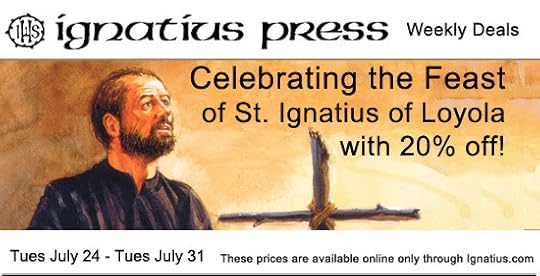
20% off in honor of St. Ignatius of Loyola
Offer ends Tuesday July 31st, 2012 at 12:00 midnight EST. These prices are available online only through Ignatius.com
Saint Ignatius, formerly a soldier, converted to a deeper Catholic faith after he was injured in a battle. During the time he was recovering, he read a number of religious books on the life of Jesus and the saints. These books inspired Saint Ignatius to devote his life to Christ. He went on to found the Society of Jesus (the Jesuits) and wrote his powerful and widely influential work, Spiritual Exercises. July 31 marks the Feast of this beloved saint. In celebration of his life and his writings, as well as writings from other Jesuits, Ignatius Press is offering 20% off on the Spiritual Exercises DVD, the Do It at Home Retreat book and more!
Books
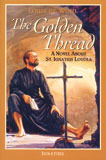 The Golden Thread
The Golden Thread
Louis de Wohl
De Wohl describes the story of St. Ignatius Loyola's conversion and pilgrimage with the colorful and dangerous history of Spain and Italy in the early sixteenth century.
Regular price: $16.95, sale price: $13.56
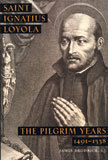 St. Ignatius of Loyola
St. Ignatius of Loyola
James Brodrick, S.J.
In this biographical work, Fr. Brodrick combines scholarly research with a readable style that shows the stages by which God led the wounded cavalier out of his dream-world of romantic battles into the noontide of divine reality. Includes maps and index.
Regular price: $16.95, sale price: $13.56
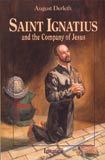 Saint Ignatius and the Company of Jesus
Saint Ignatius and the Company of Jesus
August Derleth
This Vision book for youth 9 - 15 years old tells the exciting, dramatic story of St. Ignatius of Loyola and the order he founded, the Society of Jesus.
Regular price: $9.95, sale price: $7.96
[image error]A Pilgrim's Journey
Joseph N. Tylenda, S.J.
This autobiography of St. Ignatius spans 18 years of his life—from his wounding at Pamplona through his conversion, his studies and his journey to Rome to place his community at the disposal of the Pope.
Regular price: $16.95, sale price: $13.56
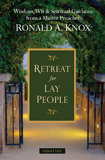 A Retreat for Lay People
A Retreat for Lay People
Fr. Ronald Knox
Ronald Knox was a deft apologist and it is in his sermons and retreat conferences that we meet Ronald Knox the spiritual guide. A Retreat for Lay People brings together a collection of his conferences preached over a period of fifteen years.
Regular price: $16.95, sale price: $13.56
 Book of All Saints
Book of All Saints
Adrienne von Speyr
Adrienne von Speyr had a deep communion with the saints and would see them while in a state of mystical prayer. Among the long list of saints in this book are St. John the Apostle, St. Augustine, St. Francis, St. Thomas Aquinas, St. Ignatius of Loyola, St. Teresa of Avila, St. John of the Cross, St. John Bosco, St. Bernadette, St. Edith Stein and many, many more.
Regular price: $24.95, sale price: $19.96
Do It at Home Retreat
Fr. Andre Ravier, S.J.
This book is a most helpful and careful guide to anyone who desires to make an Ignatian retreat but is unable to make the Spiritual Exercises in a normal retreat.
Regular price: $14.95, sale price: $11.96
To the Other Towns
William Bangert
Blessed Peter Favre, met Ignatius and Francis Xavier in 1525, and began the great Society of Jesus. A moving portrait of this zealous Jesuit who spent himself for the cause of Christ with work that kept him always on the move "to the other towns".
Regular price: $14.95, sale price: $10.36
Jesuit Authors and Stories
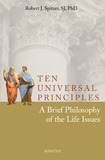 Ten Universal Principles
Ten Universal Principles
Fr. Robert Spitzer, SJ
In Ten Universal Principles: A Brief Philosophy of the Life Issues, Jesuit Father Robert Spitzer sets out, in a brief, yet highly-readable and lucid style, ten basic principles that must govern the reasonable person's thinking and acting about life issues.
Regular price: $16.95, sale price: $13.56
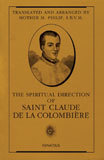 Spiritual Direction of Saint Claude De Colombiere
Spiritual Direction of Saint Claude De Colombiere
Mother M. Philips
St. Claude de la Colombiere ranks among the masters of the spiritual life as a director of souls. His sure judgment, aided by grace, enabled him to understand the difficulties of each soul and give the advice most needed for each person.
Regular price: $11.95, sale price: $9.56
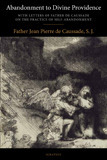 Abandonment to Divine Providence
Abandonment to Divine Providence
Jean-Pierre de Caussade, S.J.
This special volume of the famous spiritual treatise also includes the many insightful letters of Father de Caussade on the practice of self-abandonment. These numerous letters provide a great additional source of wisdom and practical guidance for how to grow in abandonment and to deepen our union with God in our daily lives.
Regular price: $19.95, sale price: $15.96
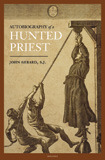 Autobiography of a Hunted Priest
Autobiography of a Hunted Priest
John Gerard, S.J.
This autobiography of a Jesuit priest in Elizabethan England is a most remarkable document and John Gerard, its author, a most remarkable priest in a time when to be a Catholic in England courted imprisonment and torture; to be a priest was treason by act of Parliament.
Regular price: $17.95, sale price: $14.36
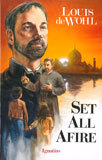 Set All Afire
Set All Afire
Louis de Wohl
With humility and deep religious conviction, the famous Catholic novelist Louis de Wohl takes us into the mind and heart of this great missionary and saint who went by order of St. Ignatius of Loyola to "set all afire" in the Orient. The book captures the dramatic struggles and inspiring zeal of this remarkable saint.
Regular price: $16.95, sale price: $13.56
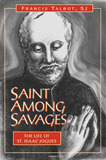 Saint Among the Savages
Saint Among the Savages
Francis Xavier Talbot, S.J.
"I go, but I shall never come back again.” These were Isaac Jogues' words on the eve of embarking for a second missionary attempt in America.Against a background of bloody wars between great Indian nations passes the magnificent figure of the Jesuit, Isaac Jogues, intrepid pioneer, victim of horrific cruelties, and saint.
Regular price: $19.95, sale price: $15.96
Advent of the Heart
Fr. Alfred Delp, S.J.
Delp, a German Jesuit priest, was a gripping, dynamic preacher, and one who was an outspoken critic of the Nazi regime. Arrested in 1944, tortured, imprisoned, and executed on Feb 2, 1945, he was still able to secretly write the meditations in this book, which were smuggled out of prison.
Regular price: $14.95, sale price: $11.96
A Kindly Providence
Louis Renner, S.J.
This is both a rich history of the Catholic Church in Alaska, and the autobiography of Fr. Renner who was a missionary in Alaska for 40 years. He tells a compelling story of a full and fascinating life.
Regular price: $16.95, sale price: $13.56
Saint Isaac and the Indians
Milton Lomask
This is the inspiring story of Saint Isaac's enslavement by the Mohawks, his daring escape, and finally, his death as a martyr for the Faith.
Regular price: $9.95, sale price: $7.96
Edmund Campion
Fr. Harold C. Gardiner, S.J.
From the famous Vision Books series of lives of saints for young people, this is the inspiring dramatic account of the colorful and courageous life and death of the martyr, St. Edmund Campion, "hero of God's underground" during the persecutions of the Catholics in England in the 1500s.
Regular price: $9.95, sale price: $7.96
He Leadeth Me
Fr. Walter Ciszek, S.J.
This is the moving story of Fr. Ciszek's spiritual odyssey and the faith which enabled him to survive 23 years in the prisons of Siberia. Only through reliance on God's will, and the courage he found in prayer, did he manage to endure the terrible loneliness, pain, and fear.
Regular price: $15.95, sale price: $12.76
Kateri Tekakwitha
Evelyn Brown
This is the inspiring story of Blessed Kateri Tekakwitha, a holy young Indian woman who was converted to Christianity by the French missionaries led by Saint Isaac Joques during the 1600s.
Regular price: $9.95, sale price: $7.96
Saint Francis of the Seven Seas
Albert J. Nevins, N.M.
This story from the popular Vision Books series of saints lives for youth is about the inspiring life of the great missionary to the Far East, St. Francis Xavier.
Regular price: $9.95, sale price: $7.96
Five Pillars of the Spiritual Life
Fr. Robert Spitzer, SJ
Fr. Spitzer presents a practical, yet rich guide for helping busy people develop a regular and deeper prayer life. This brilliant Jesuit priest presents five essential means through which the contemplative and active aspects of our lives can be fused together for a stronger spiritual life.
Regular price: $14.95, sale price: $11.96
Films
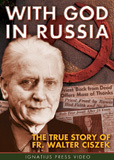 With God in Russia
With God in Russia
Well known for his heroic story of surviving 24 years in Russian prison camps, this film about the great Jesuit Fr. Walter Ciszek traces his incredible endurance and struggle for survival. It highlights his tremendous faith in God, and the remarkable impact his life has had on the resurgence of Catholicism in Russia, as seen with on location footage from around the world.
Regular price: $14.95, sale price: $11.96
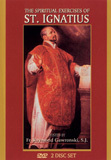 Spiritual Exercises of St. Ignatius
Spiritual Exercises of St. Ignatius
These "exercises for the soul" lead the follower of Christ from self will and excessive attachment into the freedom of the sons of God: freedom to know and do the will of God. Under the guidance of Fr. Raymond Gawronski, S.J., the viewers of this 13 part series can make the actual Ignatian retreat, covering all the major points of the Spiritual Exercises.
Regular price: $29.95, sale price: $23.96
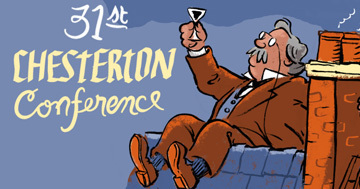
The 31st Annual Chesterton Conference takes place August 2-4, 2012 at the Silver Legacy Resort and Casino in Reno Nevada.
Speakers include Joseph Pearce, Dale Ahlquist, Kevin O'Brien and more! To register and for more information, visit the website here.
Catholic World Report and Homiletic & Pastoral Review
Contraception in the United States: A Short History
by John B. Buescher
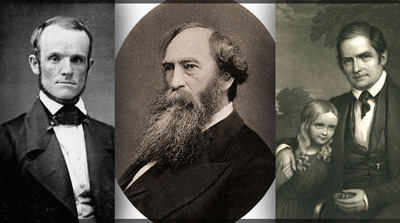
Many 19th-century promoters of contraceptives were religious zealots who first attacked marriage, then procreation.
Today, Catholic apologetics against contraception and abortion sometimes appear historically naive, as if these issues suddenly fell out of the sky in 1930 with Resolution 15 of the Anglican Lambeth Conference on contraception, or in 1973 with Roe v. Wade. A little information about the early history of contraception and abortion advocacy in America—especially its deepest objectives—might help. The Catholic Church has vast resources to deploy as long as it understands its opponents well. And one important thing it should understand is that many of contraception and abortion’s early proponents were religious enthusiasts.
Spiritual Direction in the Life of a Priest
by Fr. Joseph J. Kelly

Good and regular spiritual direction can help us work through some of the natural and dangerous currents in the spiritual life.
Remember the joke about the Exodus? “Why did Moses and the Israelites wander 40 years in the desert?” The answer: “Because men hate to ask for directions!” As a priest, who has been involved in the ministry of spiritual direction for more than half of my 33 years as a priest, I believe that the joke is on us. Although there are many reasons why priests do not continue in spiritual direction after ordination—i.e., time and availability of spiritual directors, to name a few—I am convinced that seeking out and receiving regular, one-on-one, spiritual direction is a graced relationship, worthy of our time and trust.
For Additional Sale Items Click HERE!
Contraception in the United States: A Short History
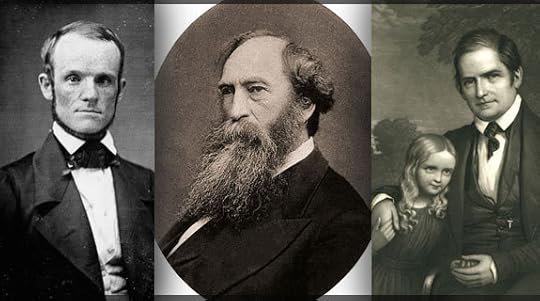
Contraception in the United States: A Short History | John B. Buescher | Catholic World Report
Many 19th-century promoters of contraceptives were religious zealots who first attacked marriage, then procreation.
Today, Catholic apologetics against contraception and abortion sometimes appear historically naive, as if these issues suddenly fell out of the sky in 1930 with Resolution 15 of the Anglican Lambeth Conference on contraception, or in 1973 with Roe v. Wade.
A little information about the early history of contraception and abortion advocacy in America—especially its deepest objectives—might help. The Catholic Church has vast resources to deploy as long as it understands its opponents well. And one important thing it should understand is that many of contraception and abortion’s early proponents were religious enthusiasts.
The philosophy of fruitlessness
The first public advocacy of contraception was not explicitly religious. It came in the form of a pamphlet by a self-defined “freethinking” materialist—a Massachusetts physician, Charles Knowlton, who wrote and published The Fruits of Philosophy in 1830.
As a young man, Knowlton had been upset by the very fact of his nocturnal emissions and had gone to a handyman and electrical tinkerer in the neighborhood who administered shock treatments for his “condition,” to no avail. Knowlton took a fancy to the electrical tinkerer’s daughter, married her, and found that his “problem” immediately was cured. Later, after conducting some private research into anatomy while studying medicine, he wound up in jail for nocturnal grave robbing, or as he put it, “depriving a parcel of worms of their dinner.” Dr. Knowlton, although he fancied himself to be among the illuminati, would seem to have been something of a creature of the night.
His pamphlet detailed all the methods of contraception that he had come across, including coitus interruptus, condoms, vaginal sponges, and the method he thought most effective, douching with a vaginal syringe. He justified birth control with an argument that remains a standard today, in arguing for sex education in schools as well as in condemning the Catholic Church for not supporting mass condom distribution:
Carl E. Olson's Blog
- Carl E. Olson's profile
- 20 followers



